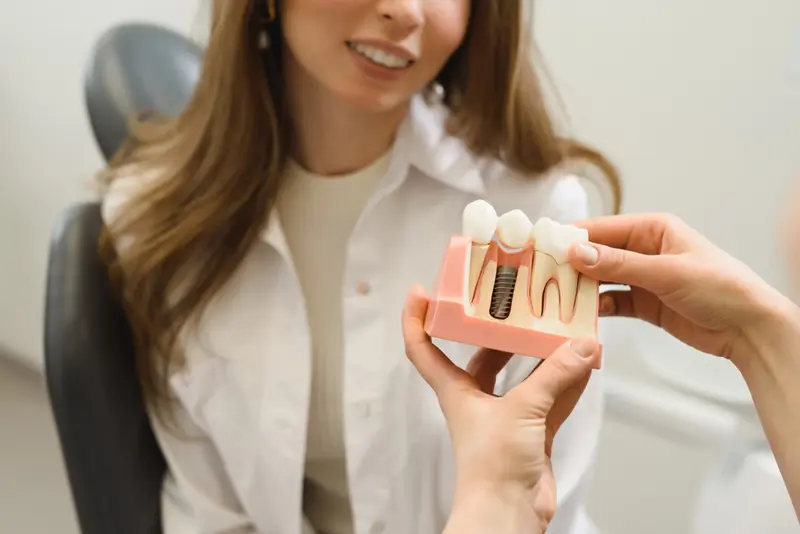As the title suggests, failure to replace an extracted tooth with a implant can have serious consequences. Here is what you need to know about it and some important information about the importance of protecting your dental health.
Consequences of not replacing an extracted tooth with an implant
When a when a tooth is extracted, over time the space left will cause other teeth to shift and can cause the jaw bone to fuse. A missing tooth can affect your chewing function, impair your speech and even change your facial features. This can occur if the extracted tooth is not replaced with an implant.
What are dental implants and how can they help?
A dental implant is an artificial root that replaces a missing tooth. This implant acts like a natural tooth root and integrates into the jawbone. With a porcelain crown placed on it, an aesthetically similar appearance to the natural tooth is obtained. Implants fill the place of the extracted tooth, preventing the jawbone from melting and preserving the position of the other teeth.
An Effective Solution for a Healthy Smile
Dental implants are one of the most effective and long-term ways to replace missing teeth. Compared to other alternatives, implants are durable, long-lasting and have a natural appearance. In addition, implants maintain overall oral health by preventing the jawbone from resorption.
When a tooth is extracted, the importance of replacing the extracted tooth should not be underestimated. Dental implants effectively replace the missing tooth, preventing jawbone resorption, preserving the position of other teeth and providing a healthy smile. If you are suffering from these problems, you can contact our clinic immediately and make an appointment with our implant specialists.
